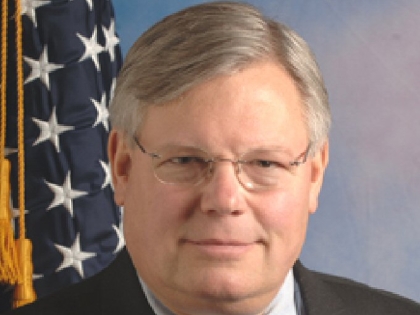
The New York Times: From the Floor and the Heart, Senators Make an Issue Personal
ALBANY — Ruth Hassell-Thompson was a young girl decades ago when her older brother, a gay man, vanished from her deeply religious family, moving away to escape their disapproving father.
Ms. Hassell-Thompson, 67, searched for years, finally finding him in a village in the south of France. When she urged him to come home, he said that “my father doesn’t want to see me.”
“But your sister does,” Ms. Hassell-Thompson recalled telling him, her voice breaking as she stood on the Senate floor on Wednesday and publicly revealed her brother’s story for the first time.
Ms. Hassell-Thompson, a Democratic state senator from Westchester who grappled over whether to support the legalization of same-sex marriage, said she ultimately could not oppose a bill that would have eased the pain of her brother’s life.
“He needed to know that the sister that he loved and revered struck a blow for justice for him,” she said in an interview.
In an extraordinarily personal debate, senator after senator cast aside the often mundane rhetoric of lawmaking and delved into the most intimate aspects of their lives: husbands, wives, siblings and religion.
A Jewish senator told of a gay friend who was disowned by his family and was taken in by Holocaust survivors all too familiar with the brute realities of discrimination. Black lawmakers evoked slavery and the fight for civil rights, recalling a not-so-distant time when the right to marry was still determined by skin color.
“Each of us here today has their own experiences with discrimination in their lives, their loved ones’ lives,” said Senator Liz Krueger of Manhattan as she spoke about her grandparents who came to the United States to escape the Russian pogroms. Afterward, outside the chamber, Ms. Krueger wept and could barely speak. “I don’t tend to be particularly emotional in this town,” she said. “This is different.”
Of the lawmakers who spoke on the floor of the chamber, all but one declared their support for the same-sex marriage bill. Nearly all those who voted against the bill remained silent during the two-hour debate. And though the bill was defeated by a wide margin, many of the senators shared the kind of personal stories rarely heard in such a public venue.
Ms. Krueger recalled her brother, Peter, a gay man who died of AIDS in 1988. “The fate of tens of thousands of New Yorkers are in our hands right now,” she said. “You’re not always aware of that when you’re debating bills in here; you think of things more in the abstract.”
Saying he had never been so nervous before addressing his colleagues, Senator Eric Adams, a Brooklyn Democrat, read off the names of states that once sold blacks into slavery. He drew a comparison between barring gays from marrying and the ban on interracial marriages that existed in many states until a Supreme Court decision in 1967.
“It was not until 1967 before my son could marry Senator Griffo’s daughter if he wanted to, or Senator Lanza’s family member,” said Mr. Adams, who is black, referring to Joseph A. Griffo and Andrew J. Lanza, white Republican senators who ultimately voted against the bill. “It was an abomination for interracial couples to fall in love; it would destroy the institution of marriage. This is exactly what we heard then.”
Nearly every senator who spoke confessed to a sense of anxiety. Thomas K. Duane, the bill’s lead sponsor and the Senate’s only openly gay member, appeared nearly overcome as he issued a final call for support. Mr. Duane, a Democrat from Manhattan, clasped his hands, almost as if in prayer.
“I want to thank you for your humor, your loss, your sadness, happiness; I want to thank you for letting me be angry when I needed to be,” he said. “I consider all of your offices a cry-appropriate zone; in my office the tissues are always out.”
To read the full article, click here.